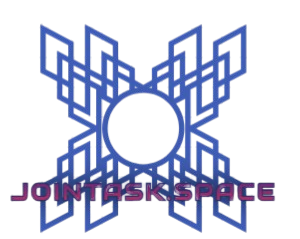Introduction to Bootcamp Training
Bootcamp training has emerged as a transformative educational model, catering to individuals seeking rapid skill enhancement in various fields. The structure of bootcamp programs is inherently intensive, often designed to condense months, if not years, of knowledge into a focused, short-term curriculum. Typically lasting between four to twelve weeks, these programs require participants to invest considerable time and effort, committing to daily classes and hands-on projects that reinforce learning through practical application.
Bootcamp training encompasses a wide array of disciplines, with popular areas including software development, data science, digital marketing, personal training, and various professional services. Each program focuses on specific competencies, preparing participants for real-world challenges by emphasizing collaboration, critical thinking, and problem-solving skills. This targeted approach allows learners to acquire not only theoretical knowledge but also the hands-on experience necessary to excel in their chosen fields.
The rise in popularity of bootcamps can largely be attributed to the increasing demand for skilled professionals in today’s fast-paced job market. Traditional education paths often require years of study, which can be prohibitively time-consuming for those desiring immediate results. Bootcamp training, on the other hand, offers an accelerated alternative that equips individuals with relevant skills that employers are actively seeking, thereby enhancing employability and career prospects within a relatively short timeframe.
Moreover, bootcamp programs often include networking opportunities and career support, further bolstering the potential for success. Graduates emerge from these intensive courses not only with new skills but also with valuable connections in their respective industries, positioning them favorably for employment or advancement. This unique blend of structured learning and practical experience underlies the growing appeal of bootcamps as a viable option for personal and professional development.
The Curriculum: What to Expect
Embarking on an 8-week bootcamp program offers participants a well-structured and intensive learning experience. The curriculum is meticulously designed to cover a breadth of essential subjects tailored to equip learners with both theoretical knowledge and practical skills necessary for real-world applications. Typically, the program includes core subjects such as programming fundamentals, web development, data analysis, and UX/UI design, providing a robust foundation across various critical areas in the tech landscape.
The bootcamp often adopts a modular approach, breaking down the learning process into weekly segments. Each week usually focuses on a specific topic, allowing participants to gradually build on their understanding and skills. For instance, the first few weeks may be dedicated to foundational topics, with participants learning coding languages such as HTML, CSS, and JavaScript, while also being introduced to fundamental programming concepts. As the program progresses, the curriculum evolves to more advanced subjects like database management, APIs, and project management methodologies.
Moreover, to reinforce learning, the curriculum places significant emphasis on hands-on projects. Participants are encouraged to apply their knowledge through practical exercises and real-world scenarios. This pragmatic approach not only aids retention of theoretical concepts but also fosters problem-solving skills that are invaluable in the workplace. Collaborative projects and peer feedback sessions are typically integrated, cultivating a spirit of teamwork and providing valuable experience in a group setting.
Overall, the curriculum of an 8-week bootcamp is designed to ensure that participants emerge not only with knowledge but also with the confidence to apply what they have learned in meaningful ways. The combination of theoretical insights and practical applications prepares learners for the competitive landscape of their chosen fields, equipping them for future success.
Transformational Results: Skills and Outcomes
Completing an 8-week bootcamp represents a significant commitment towards personal and professional development, yielding substantial results in both hard and soft skills. By design, these programs focus on delivering concentrated training sessions that help participants acquire applicable skills within a short timeframe, underscoring the transformation potential that this immersive experience offers.
One of the primary outcomes of bootcamp training is the enhancement of hard skills. For instance, in a coding bootcamp, participants can expect to gain proficiency in various programming languages, enabling them to tackle real-world projects with increased confidence. Similarly, those enrolled in project management bootcamps often learn methodologies such as Agile or Scrum, equipping them with frameworks that enhance their project execution capabilities. These targeted skill acquisitions lead not only to personal fulfillment but also increase employability, as participants become desirable candidates for roles demanding these competency areas.
However, the effects of participating in an intensive bootcamp extend beyond technical proficiencies. Soft skills—essential attributes that foster collaboration and creativity—also receive considerable attention. Bootcamp participants frequently enhance their abilities in teamwork, communication, and critical thinking. Engaging in group projects and interactive simulations cultivates an environment where problem-solving skills can flourish. These attributes are invaluable in any professional setting, as employers actively seek individuals who can work effectively within teams and contribute innovative ideas to their organization.
A multitude of success stories from previous bootcamp graduates exemplify the profound changes that can occur in just eight weeks. Individuals transitioning from unrelated fields often find new career pathways opened, while those already in the workforce gain promotions or new opportunities. By transforming both their hard and soft skills, these participants emerge ready to meet the challenges of today’s dynamic job market, evidencing the significant impact of bootcamp training.
Post-Bootcamp: Next Steps for Success
Completing a bootcamp is a significant achievement, but it is just the beginning of a journey towards professional success. To leverage your newly acquired skills effectively, consider developing a robust portfolio that showcases your projects and achievements. This portfolio serves as a tangible demonstration of your capabilities to potential employers. Include not only the work completed during the bootcamp but also any personal projects or freelance work that highlights your expertise. A well-organized and visually appealing portfolio can set you apart in competitive job markets.
Networking is another critical component of leveraging your bootcamp experience. Engaging with fellow participants, instructors, and industry professionals can lead to valuable opportunities. Attend meetups, conferences, or workshops relevant to your field to expand your network further. Social media platforms, particularly LinkedIn, can also be utilized for connecting with industry leaders and joining relevant groups focusing on your area of expertise. Building relationships within your community can open doors to job referrals and mentorship opportunities.
When it comes to job searching after bootcamp, a strategic approach is vital. Tailor your resume and cover letter to highlight the skills acquired during your training. Utilize job boards, company websites, and recruitment agencies to find potential roles aligned with your aspirations. Moreover, be proactive—don’t hesitate to reach out to companies you admire, even if they are not advertising open positions. Your unique bootcamp experience is a conversation starter and can set the stage for insightful connections.
Finally, it is essential to recognize that the learning process does not conclude with the bootcamp. Commit to continuous learning by enrolling in advanced courses, attending workshops, and participating in webinars to stay current with industry trends. This proactive engagement in your professional development will help reinforce the foundation set during your bootcamp training and prepare you for long-term success in your career.


No responses yet